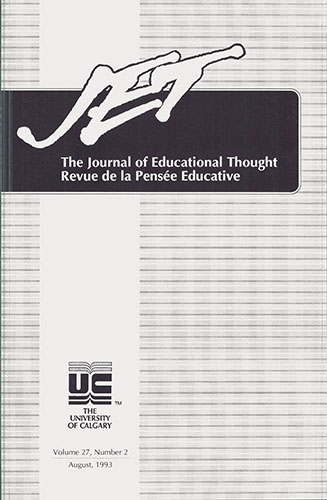Give Me Liberty: Why It Is Important Not to Confuse Freedom and Other Educational Values
DOI:
https://doi.org/10.55016/ojs/jet.v27i2.52320Abstract
Freedom as liberty, the absence of constraints by other people, is crucial in politics and education. Unfortunately, it is too often confused with such other conceptions as autonomy and ability. Freedom as liberty is justified both by Kant's Principle of Practical Reason and by Mill's four arguments. Moreover, the personal pursuit of other values normally presupposes, or empirically requires, freedom as liberty. The author proposes that freedom should be kept conceptually distinct from notions of autonomy and ability because freedom has a fundamental place in their achievement through education. Being in possession of abilities and powers is not being in possession of freedom and having freedom is not the same thing as acquiring ability. The onus is not upon persons to show why they should be allowed to be free and to do what they want to do, but rather upon those who set the constraints. If we make schooling compulsory and stop children from doing other things they might prefer, we do so only for good reasons of prudence or morality which justify such constraints.Downloads
Published
2018-05-16
Issue
Section
Articles
License
The Journal of Educational Thought retains first publication rights for all articles. The Journal grants reproduction rights for noncommercial educational purposes with the provision that full acknowledgement of the work’s source be noted on each copy. The Journal will redirect to the appropriate authors any inquiries for further commercial publication of individual articles. All authors wishing to publish in JET will be asked to fill in and sign a Consent to Publish and Transfer of Copyright agreement.
Authors must affirm that any submission to JET has not been and will not be published or submitted elsewhere while under considration by JET.

